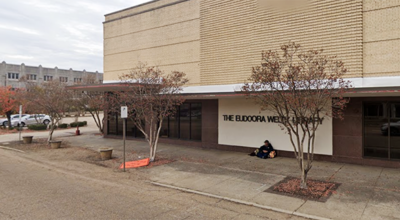Twenty Mississippi hospitals join lawsuit against opioid makers, distributors
Published 3:32 pm Friday, October 18, 2019
A group of 20 Mississippi hospitals have filed a civil lawsuit against the manufacturers, distributors and retailers of opioid-based drugs. Mississippi hospitals have experienced significant financial and operational harm as they have fought and treated the complications of addiction on the front lines of the nation’s opioid epidemic. The Mississippi hospitals are among hundreds across the U.S. that have filed similar lawsuits.
Filed in the Chancery Court of Jackson County, Miss., the claim alleges negligence, fraud and civil conspiracy by the defendants, which include Purdue Pharma, Teva Pharmaceuticals USA, Amerisource Bergen and more than 30 other companies and individuals involved in the manufacturing, distribution and sales of prescription opioids.
The filing alleges long-term unlawful practices in which the defendants misrepresented the addiction risks associated with opioid products with deceptive marketing tactics. Their unlawful efforts have resulted in widespread addiction, suffering, and loss of life in communities across the country. Hospitals, which often serve as a treatment option of first and last resort for victims addicted to opioids, have borne much of the direct financial burden of care and treatment and continue to do so.
More than 800 million pills were supplied to Mississippi from 2006 to 2012 and the crisis has escalated. The state is among the top five for per capita opioid distribution with more than 92.9 opioid prescriptions written for every 100 people in 2017, compared to a national average rate of 58.7 per 100. Gov. Phil Bryant issued an executive order in 2017 declaring the opioid epidemic an emergency in Mississippi. In 2018, there were enough opioids dispensed in the state to provide every man, woman and child with 50 doses each.
“The addiction and suffering caused by the opioid crisis is experienced on a tragic and deeply personal level by patients, families and their care providers at clinics and hospitals,” said Lee Bond, chief executive officer of Singing River Health System. “Our mission is to improve health and saves lives, and the opioid crisis makes that more challenging than it needs to be. The expense of treating overdose and opioid-addicted patients has skyrocketed, straining the resources of hospitals throughout our state. Hospitals are already doing so much to alleviate this crisis – it is time for the entities that profited from the epidemic to help fund the solution.”
The cost to hospitalize those with opioid related conditions in hospital intensive care units increased more than 58% in a seven-year span between 2009 and 2015, from $58,000 to $92,400, a period when medical cost escalation overall rose 19%. A significant portion of those costs were unreimbursed or reimbursed at a rate much less than the cost of the care provided.
Mississippi hospitals continue to treat patients for opioid overdose, opioid addiction, mental health, hepatitis C, HIV and other infections resulting from intravenous drug usage. Additionally, many hospitals provide treatment in their neonatal intensive care units for babies born suffering from opioid withdrawal, for which treatment is specialized, intensive, complex, expensive and lengthy.
Many hospitals have been forced to make capital investments to accommodate increased security measures and create new treatment areas for overdose patients as well as those experiencing acute and chronic diseases that result from opioid abuse.
“Hospitals can lead the way out of this public health crisis but only with additional resources,” said Don Barrett, attorney with Barrett Law Group, P.A., representing the Mississippi hospitals. “Their damages are measurable and ongoing, so they must be active participants in any opioid settlement discussions.”
In August, the American Hospital Association urged a judge hearing one of the opioid cases “to ensure that needed funds are directed to the hospitals and health systems that are on the forefront of caring for the victims of this epidemic. With additional resources, hospitals can broaden access to post-overdose treatment in emergency departments, increase training of physicians to treat substance use disorders, cover the costs of lengthy stays and follow-up care for infants with neonatal abstinence disorder, and invest in electronic health information systems to improve coordinated care and prevent overprescribing.”
The case is number 30CH1:19-cv-01879-TLH in Chancery Court of Jackson County, Mississippi.
A full copy of the lawsuit is linked here.
More News






